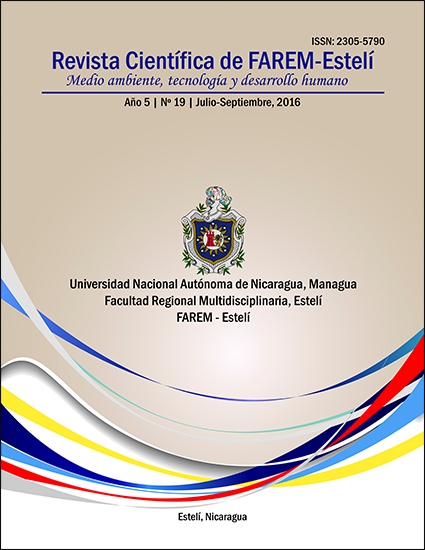Characterization of the nutritional status and the current conditions among families of the micro watershed of Moyua- Darío, Matagalpa. Nicaragua, 2015
Abstract
The study was conducted in four rural communities of the municipality of Ciudad Darío, Matagalpa: Moyúa, Playitas, Puertas viejas, Papayal. All of those belong to the micro watershed of Río Grande of Matagalpa, Nicaragua. The study aimed to characterize the nutritional status and the current social conditions of the families. The methodology used followed the quantitative research design, and featured some qualitative elements. The population consisted of 84 families and the sample consisted of 42, which represents to the 50% of the total population. The sample was randomly chosen and the following criteria were set: that the family had at least one child less than five years old, that the family had lived in the community for at least six years, and that the mothers were willing to give relevant information. The main research results reveal that 20-30 years of the average age of pregnancy. Moreover, they indicate that the mothers in the community annually take some protections measures. Children face a high risk of obesity and overweight. Mothers feed their babies from 2-24 months old; however, the Health Ministry suggests 3-6 months so as babies get the minerals and vitamins they need at an early age. The families have the basic services, such as electric energy, drinking water, floor, roof and brick walls.
Key words: Eating habits, body mass number, household.



